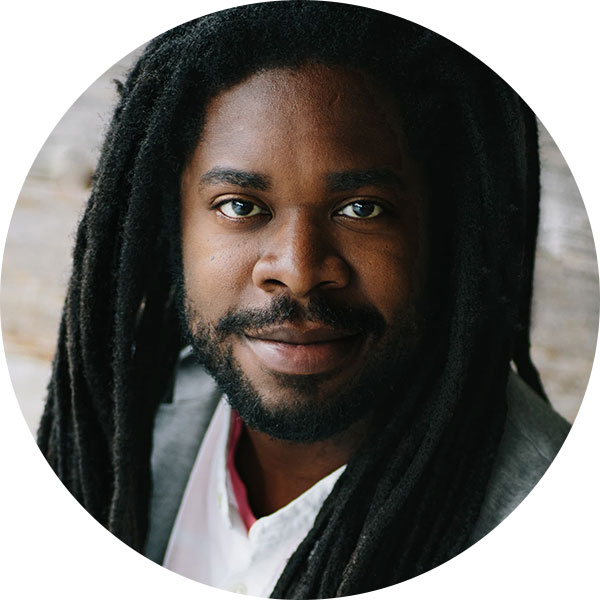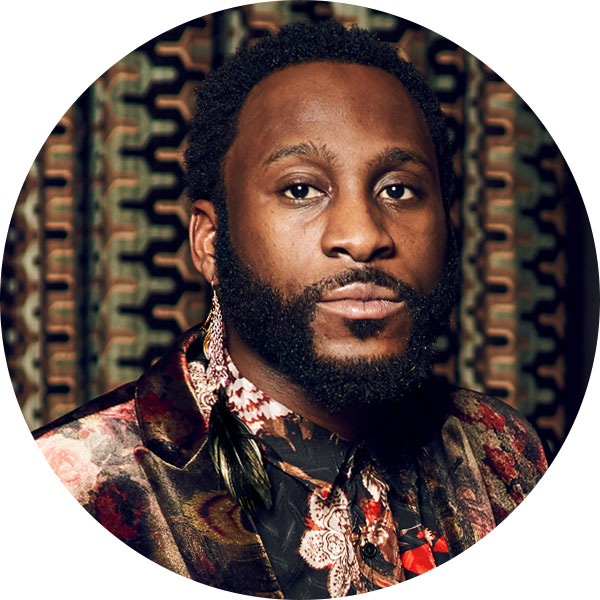Bios

Dashon Burton
Praised for his “nobility and rich tone” (The New York Times), bass-baritone Dashon Burton has established an international career in opera, recital, and in many works with orchestra.
In key elements of his repertoire — Johann Sebastian Bach’s Passions and Mass in B minor, Felix Mendelssohn’s Elijah, Ludwig van Beethoven’s Symphony No. 9, Johannes Brahms’ Requiem, George Frideric Handel’s Messiah, and Wolfgang Amadeus Mozart’s Requiem — Burton is a frequent guest with ensembles such as Philharmonia Baroque, Handel and Haydn Society, and Boston Baroque; the Carmel and Bethlehem Bach choir festivals; the symphony orchestras of Baltimore, Cincinnati, Cleveland, Indianapolis, Kansas City, New Jersey, and Oregon; Royal Stockholm Philharmonic; and St. Paul Chamber Orchestra.
His forays into more varied repertoire have included performances of Michael Tippett’s A Child of Our Time at Harvard University, Samuel Barber’s Dover Beach and Hans Eisler’s Ernste Gesänge with A Far Cry chamber orchestra in Boston, Aaron Copland’s Old American Songs with the Kansas City Symphony, and Franz Schubert’s Die Winterreise with Diderot String Quartet.
He performed on the original cast recording of Craig Hella Johnson’s Considering Matthew Shepard with the vocal ensemble Conspirare and toured the piece with the group. He premiered Paul Moravec’s oratorio Sanctuary Road at Carnegie Hall and performed David Lang’s The Little Match Girl Passion at the Metropolitan Museum of Art.
Burton’s opera engagements include singing Sarastro in Mozart’s Die Zauberflöte in Dijon and Paris, and the role of Jupiter in Jean-Philippe Rameau’s Castor and Pollux with Christoph Rousset and Les Talens Lyriques. He has toured Europe in Bach’s St. John Passion, with Christoph Prégardien’s Le Concert Lorraine, and in Italy with Maasaki Suzuki and the Yale Schola Cantorum in Bach’s St. Matthew Passion.
He performs recitals throughout the United States, including a program based on works from his album Songs and Struggles of Redemption; We Shall Overcome. A New York Times reviewer singled out the album as “profoundly moving … a beautiful and lovable disc.”
He graduated from the Oberlin College Conservatory of Music, and received a master of music degree from Yale University’s Institute of Sacred Music.
Go to Dashon Burton to learn more.

Michael Mwenso
Michael Mwenso was born in Freetown, Sierra Leone, but moved to London as a child. He spent his teen years hanging out at the legendary jazz club Ronnie Scott’s, where he was exposed to musicians such as Benny Carter, Elvin Jones, Ray Brown, and Billy Higgins.
He had already started honing his talents as a trombonist, singer, and performer, playing in jump bands, reggae and Afrobeat horn sections, and at hard-bop sessions. Mwenso’s talent as a performer caught the attention of many, which lead him to meet James Brown. The funk legend became a mentor and allotted space for him to sing and dance at his London shows.
In 2012, friend and jazz musician Wynton Marsalis brought Mwenso to New York City to serve as curator and programming associate at Jazz at Lincoln Center, where he also booked nightly sets at Dizzy’s Club Coca-Cola. Over the next few years, Mwenso booked and performed with the likes of Cécile McLorin Salvant, Jon Batiste, Aaron Diehl, Sullivan Fortner, and Jamison Ross.
Through the performances, at Dizzy’s, Mwenso began to collaborate with a variety of Juilliard-trained musicians, a collective that soon became known as The Shakes. This unique group of global artists present music that merges entertainment and artistry with a formidable timeline of jazz and blues through African and Afro-American music. The group has toured extensively through the United States and has received high praise from the debut release Emergence.
Visit Mwenso and the Shakes to learn more.

